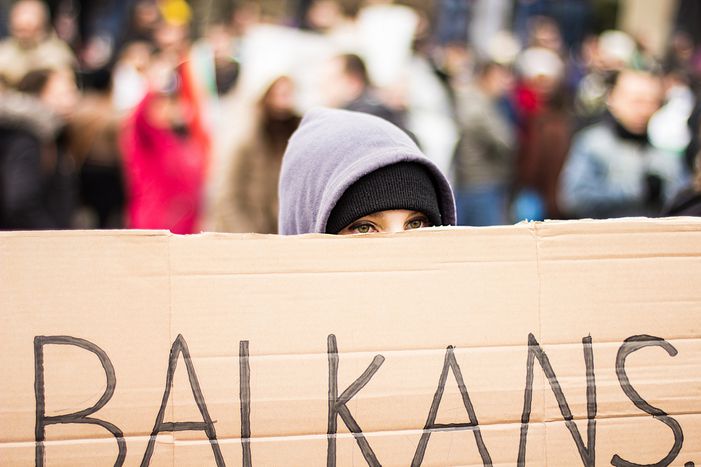
The hardest day
Published on
On each side, the last round of talks mark a turning-point in the negotiation process. Following the 22 october reunion in Vienna, all the parties agree to say that it had been tough. Above all differences, two points of view clash as to what the negotiation objectives are if they are to be considered as negotiations at all. Belgrade is looking for a settlement, Pristina wants independence.
Belgrade is very attached to form which ,as is widely known, reveals content. Blic On line publishes Belgrade's answer to the 14 points set out by the troïka named “Belgrade's principles on the pursuit of negotiations in Kosovo and Metohija”. As an example, where the troïka refers to “Belgrade”, the Serbs correct it and use the term “Serbia”. Further on, at the fourth paragraph, is laid down the same sentence word for word as the one found in the main proposition which reads “there will be no going back to the pre-1999 situation”. On this everyone agrees but things get more complicated after the comma when “as a consequence the futur status of the Province must be resolved on the basis of Resolution 1244 of the Security Council.”
The two serb ministers present at the talks are very satisfied. “The tone is now exceptionally serious. We are discussing of the involvment to the negotiation process, of the issue as to whether we can move towards a particular direction or not, of whether a minimal agreement can be found, not only on paper but also concerning the general direction taken during the pursuit of the talks” explains Foreign Affairs Minsiter Vuk Jeremic.
On the albanian side, anger seems to be the main dominating feeling, as explains Kosovo President Fatmir Sejdjiu “This was not an easy meeting because there has been an attempt to move the talks to an unreasonable direction with their (the Serbs') dreadful idea of autonomy treating Kosovo as a serb province and the lack of readiness to recognise Kosovo's independence.” The president refers to “tension, verbal ping-pong and collisions.” He blames the Serbs for carrying on considering Kosovo as a province.
Hashim Thaçi, the Prime Minister has added : “I never believed in a settlement with Serbia on the future of Kosovo, and I still don't believe it now. Relations between Serbia and Kosovo are of a particular nature because Serbia came to Kosovo by force and before leaving committed genocide on the albanian population.” He then carries on to affirm that Kosovo independence will take place after december 10.
In effect, Kosovo is a serbian province majoritarily populated with Albanians. This is well established in resolution 1244. Still as a matter of fact, there has not been a genocide in Kosovo but war crimes committed on both sides (See Le Monde Diplomatique article “Chroniques d'un génocide annoncé” dated March 2000). Albanians consider as legitimate their claim to independence because they have been led to believe it would happen because of what the american State Department told them before the Kosovo war. However, the Americans have voted for resolution 1244 at the Security Council on June 10th 1999. Some might say the serbs are misinterpreting the letter of the law and use it as a weapon. Against whom ? Against what ? This really what this is all about, the letter of the law, the one voted at the Security Council to avoid the use of force and institute the rule of law in Kosovo.
Snejana Jovanovic / Traduction Julien de Cruz



